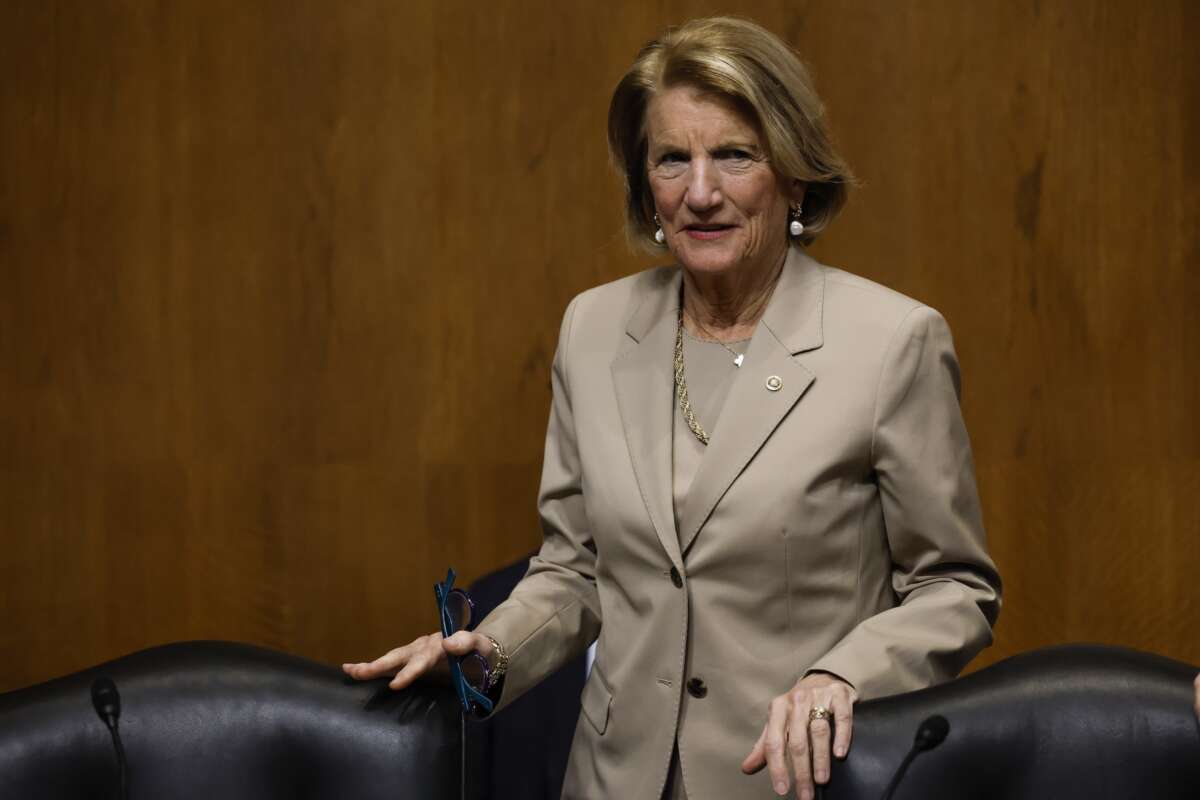Just ten senators own potentially over $1 million of individual stocks in fossil fuel companies, a new analysis shows, with the vast majority of the stocks owned by Republicans.
According to data from financial disclosure reports analyzed by Citizens for Responsibility and Ethics in Washington (CREW), the senators collectively own between $403,023 and $1,201,000 in Big Oil stocks.
Among the group, eight of the senators are Republicans, who collectively own up to $1,106,000 of these stocks, or about 92 percent. Five of the 10 senators sit on or hold leadership positions in natural resource and environment-related committees, meaning that they are directly tasked with overseeing policies on the climate crisis — and most of them have used these positions to push back against legislation that could boost renewable energies and combat the climate crisis.
This includes Sen. Shelley Moore Capito (R-West Virginia), who is top Republican on the Committee on Environment and Public Works and a member of the Commerce, Science and Transportation Committee, “putting her in the unique position of serving on both committees most relevant to Big Oil,” CREW wrote. Capito owns between $32,004 and $130,000 in stocks in Exxon, Chevron, Phillips 66 and Shell.
The single senator with the most oil and gas stock is Jerry Moran (R-Kansas), who owns between $119,006 and $360,000 in oil giants Exxon and Chevron. Moran is a member of the Commerce, Science and Transportation Committee, which has jurisdiction over subjects like the climate crisis, oceans and environmental disasters.
Sen. Pete Ricketts (R-Nebraska) has similarly large investments in Big Oil, the report found, with between $100,001 and $254,000 in stocks in Chevron, ConocoPhillips, Exxon, Phillips 66 and Valero. Ricketts is a member of the Environment and Public Works Committee, which has jurisdiction over the Environmental Protection Agency.
The other senators with oil and gas stocks detailed in the report are extremist climate denier Tommy Tuberville (R-Alabama), Susan Collins (R-Maine), Tom Carper (D-Delaware), Jacky Rosen (D-Nevada), John Kennedy (R-Louisiana), Dan Sullivan (R-Alaska) and Bill Hagerty (R-Tennessee). These lawmakers own stock in a variety of fossil fuel giants, including Chevron, Exxon, Shell and TotalEnergies.
As CREW points out, the senators with the most money invested in Big Oil have also been among the most vocal against the passage of climate legislation and in denying the climate crisis. Capito has introduced legislation to fasttrack the Mountain Valley Pipeline, a proposed fracked gas pipeline — drawing scrutiny, since Capito has both personal and political financial ties to the companies behind the project. Meanwhile, every Republican in the Senate voted against the Inflation Reduction Act (IRA), which contains crucial policies to begin mitigating the climate crisis.
Politicians have long owned stock in the oil and gas industry. A 2020 analysis by Sludge found that, among all members of Congress, 134 members own up to $92.7 million in stock in fossil fuel companies and mutual funds.
The ability of members of Congress to own stocks in the very industries they are in charge of overseeing have fueled calls in recent years for Congress to ban lawmakers from being able to trade individual stocks. However, stock ban legislation stalled in the House last year after prominent members of the Democratic leadership, including then-House Speaker Nancy Pelosi (D-California), reportedly froze out the legislation on purpose.
Angry, shocked, overwhelmed? Take action: Support independent media.
We’ve borne witness to a chaotic first few months in Trump’s presidency.
Over the last months, each executive order has delivered shock and bewilderment — a core part of a strategy to make the right-wing turn feel inevitable and overwhelming. But, as organizer Sandra Avalos implored us to remember in Truthout last November, “Together, we are more powerful than Trump.”
Indeed, the Trump administration is pushing through executive orders, but — as we’ve reported at Truthout — many are in legal limbo and face court challenges from unions and civil rights groups. Efforts to quash anti-racist teaching and DEI programs are stalled by education faculty, staff, and students refusing to comply. And communities across the country are coming together to raise the alarm on ICE raids, inform neighbors of their civil rights, and protect each other in moving shows of solidarity.
It will be a long fight ahead. And as nonprofit movement media, Truthout plans to be there documenting and uplifting resistance.
As we undertake this life-sustaining work, we appeal for your support. We have 10 days left in our fundraiser: Please, if you find value in what we do, join our community of sustainers by making a monthly or one-time gift.
